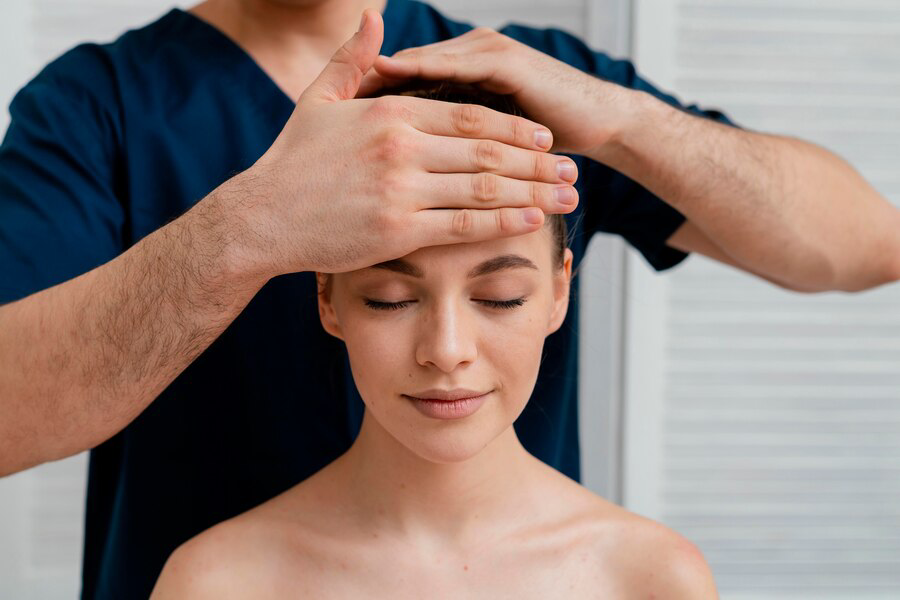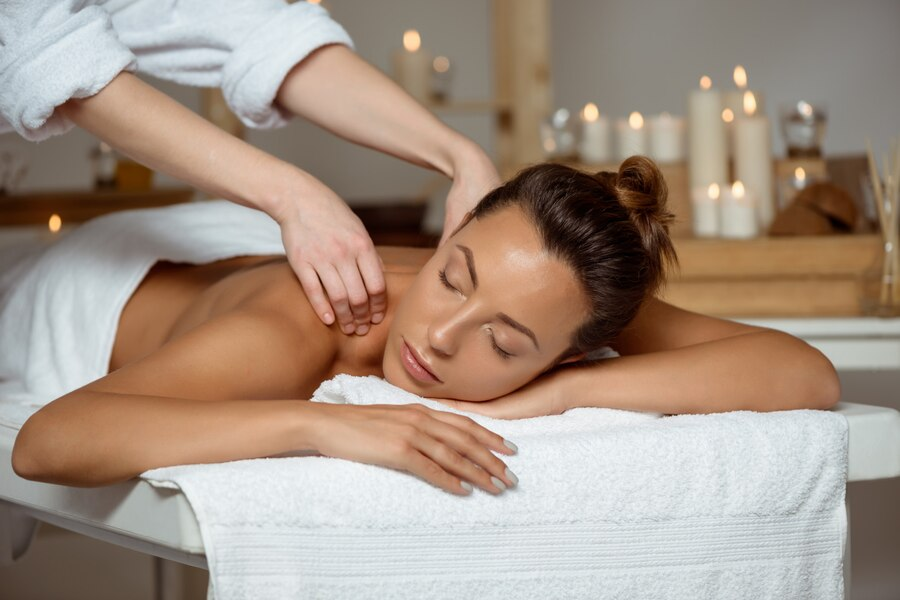In today’s fast-paced world, anxiety and depression have become increasingly common, affecting millions of people worldwide. While traditional treatments such as medication and therapy are often essential, many are turning to complementary approaches to manage their symptoms. One such method that has gained popularity is massage therapy. Beyond its well-known benefits for relaxation and physical tension, massage therapy offers promising relief for those grappling with anxiety and depression. This blog will explore how massage therapy can ease symptoms of anxiety and depression, the science behind its effects, and practical tips for incorporating it into your wellness routine.
Understanding Anxiety and Depression
Before delving into how massage therapy can help, it’s important to understand anxiety and depression and their impact on daily life.
Anxiety is characterized by persistent worry, fear, or apprehension about everyday situations or potential future events. Symptoms can include restlessness, rapid heartbeat, sweating, and difficulty concentrating. Anxiety disorders, such as generalized anxiety disorder (GAD), panic disorder, and social anxiety disorder, can significantly impair one’s ability to function and enjoy life.
Depression involves prolonged feelings of sadness, hopelessness, or a lack of interest in activities once enjoyed. Symptoms often include fatigue, changes in appetite, sleep disturbances, and difficulties in concentrating. Depression can vary in severity, from mild to major depressive disorder (MDD), and can deeply affect a person’s quality of life.
How Massage Therapy Helps
Massage therapy involves the manipulation of the body’s soft tissues, including muscles, tendons, and ligaments, to promote relaxation and alleviate discomfort. Here’s how massage therapy can specifically help with anxiety and depression:
Reduces Stress Hormones
Massage therapy has been shown to lower the levels of cortisol, a stress hormone, in the body. High cortisol levels are often linked with anxiety and depression. By reducing cortisol, massage therapy helps create a more balanced hormonal environment conducive to relaxation and emotional well-being.
Enhances Serotonin and Dopamine Levels
Regular massage therapy can increase the production of neurotransmitters like serotonin and dopamine. These chemicals play crucial roles in regulating mood, and higher levels can help alleviate symptoms of depression and anxiety.
Promotes Relaxation
The physical touch involved in massage therapy helps activate the parasympathetic nervous system, which is responsible for relaxation. This activation counteracts the “fight or flight” response associated with anxiety, leading to a sense of calm and well-being.
Improves Sleep Quality
Many individuals with anxiety and depression experience sleep disturbances. Massage therapy can improve sleep quality by relaxing the body and mind, making it easier to fall asleep and stay asleep throughout the night.
Reduces Muscle Tension
Chronic muscle tension often accompanies anxiety and depression. Massage therapy helps release this tension, reducing physical discomfort and promoting a greater sense of relaxation.
Boosts Immune Function
Chronic stress can weaken the immune system, making individuals more susceptible to illness. Massage therapy can help boost immune function by improving circulation and reducing stress, contributing to overall health and well-being.
Types of Massage Therapy
There are various types of massage therapy, each with its own techniques and benefits. Here are some popular types that can be particularly effective for managing anxiety and depression:
Swedish Massage
Known for its gentle strokes and long, flowing movements, Swedish massage promotes relaxation and reduces stress. It’s ideal for those new to massage therapy or looking for a calming experience.

Deep Tissue Massage
This type of massage targets deeper layers of muscle tissue and is useful for relieving chronic muscle tension and pain. It can be particularly beneficial for individuals experiencing physical symptoms related to anxiety and depression.
Aromatherapy Massage
Incorporating essential oils, aromatherapy massage enhances relaxation and emotional well-being. The scents used can have mood-lifting properties and contribute to a more profound sense of relaxation.
Hot Stone Massage
This technique involves placing heated stones on specific points of the body to relax muscles and improve circulation. It can provide soothing relief for those experiencing tension and stress.
Shiatsu Massage
Originating from Japan, Shiatsu involves applying pressure to specific points along the body’s meridians. This type of massage can help balance energy flow and promote relaxation, supporting emotional well-being.
Integrating Massage Therapy into Your Routine
Incorporating massage therapy into your wellness routine can provide ongoing relief from anxiety and depression. Here are some practical tips for making the most of massage therapy:
Find a Qualified Therapist
Look for a licensed and experienced massage therapist who specializes in treating anxiety and depression. A qualified therapist can tailor the massage to address your specific needs and concerns.
Set Regular Appointments
Consistency is key to experiencing the full benefits of massage therapy. Consider scheduling regular appointments, such as weekly or bi-weekly sessions, to maintain the positive effects on your mood and stress levels.
Combine with Other Therapies
Massage therapy can complement other treatments for anxiety and depression, such as medication, therapy, or lifestyle changes. Discuss with your healthcare provider how massage therapy can fit into your overall treatment plan.
Practice Self-Care
In addition to professional massage therapy, consider incorporating self-massage techniques and relaxation practices at home. Simple methods like using a foam roller, applying pressure to acupressure points, or practicing mindfulness can support your well-being.
Communicate Your Needs
During your massage sessions, communicate openly with your therapist about your preferences, pain levels, and any emotional responses. This ensures that the therapy is tailored to your needs and provides the most benefit.
Evidence Supporting Massage Therapy
Several studies and clinical trials support the effectiveness of massage therapy in managing anxiety and depression. For example:
- A study published in the Journal of Clinical Psychiatry found that massage therapy significantly reduced symptoms of anxiety and depression in participants with generalized anxiety disorder. The study highlighted the importance of regular sessions in achieving sustained improvements.
- Research in the Journal of Alternative and Complementary Medicine demonstrated that massage therapy improved mood and reduced stress in individuals with major depressive disorder. The study emphasized the role of massage in enhancing overall quality of life.
- A review article in the International Journal of Therapeutic Massage and Bodywork summarized evidence that massage therapy effectively reduces anxiety and depression symptoms, with benefits comparable to other complementary therapies.
Natural Healing for Anxiety and Depression with Massage Therapy
Massage therapy offers a profound approach to natural healing for anxiety and depression. By gently manipulating soft tissues, massage helps reduce stress hormones like cortisol and boosts mood-enhancing neurotransmitters such as serotonin and dopamine. This dual action creates a calming effect on both the body and mind, providing a holistic alternative to traditional treatments. Regular massage sessions promote relaxation, improve sleep quality, and alleviate muscle tension, which can be particularly beneficial for those struggling with emotional distress.
Incorporating massage therapy into your wellness routine can offer lasting benefits for managing anxiety and depression. Beyond immediate relief, this therapeutic approach supports overall mental well-being, fostering a balanced and healthier emotional state. Whether used alone or alongside other treatments, massage therapy can be a valuable tool in enhancing quality of life and emotional resilience.
Experience the calming power of massage therapy for a healthier mind and body
Experience the calming power of massage therapy to achieve a healthier mind and body. Through its gentle, targeted techniques, massage helps soothe both physical tension and emotional stress, creating a profound sense of relaxation. By lowering cortisol levels and enhancing the production of mood-boosting chemicals like serotonin and dopamine, massage therapy can significantly improve mental well-being. This natural approach not only alleviates symptoms of anxiety and depression but also promotes better sleep and overall vitality.
Incorporating massage therapy into your routine can lead to lasting improvements in your emotional and physical health. Whether used as a stand-alone practice or alongside other treatments, it offers a holistic way to support a balanced, healthier lifestyle. Embrace the therapeutic benefits of massage to nurture both your body and mind.
Conclusion
Massage therapy provides a natural and effective way to alleviate symptoms of anxiety and depression. By reducing stress hormones, enhancing mood-regulating neurotransmitters, and promoting relaxation, massage therapy supports both mental and physical well-being. This holistic approach not only helps in managing emotional distress but also improves overall quality of life by enhancing sleep and reducing muscle tension. Integrative Chiropractic in Overland Park offers expert massage therapy services to help individuals find relief from anxiety and depression. Incorporating massage into your routine can be a valuable addition to your wellness strategy. For more information or to schedule a session, contact Integrative Chiropractic at 913-451-7500.

